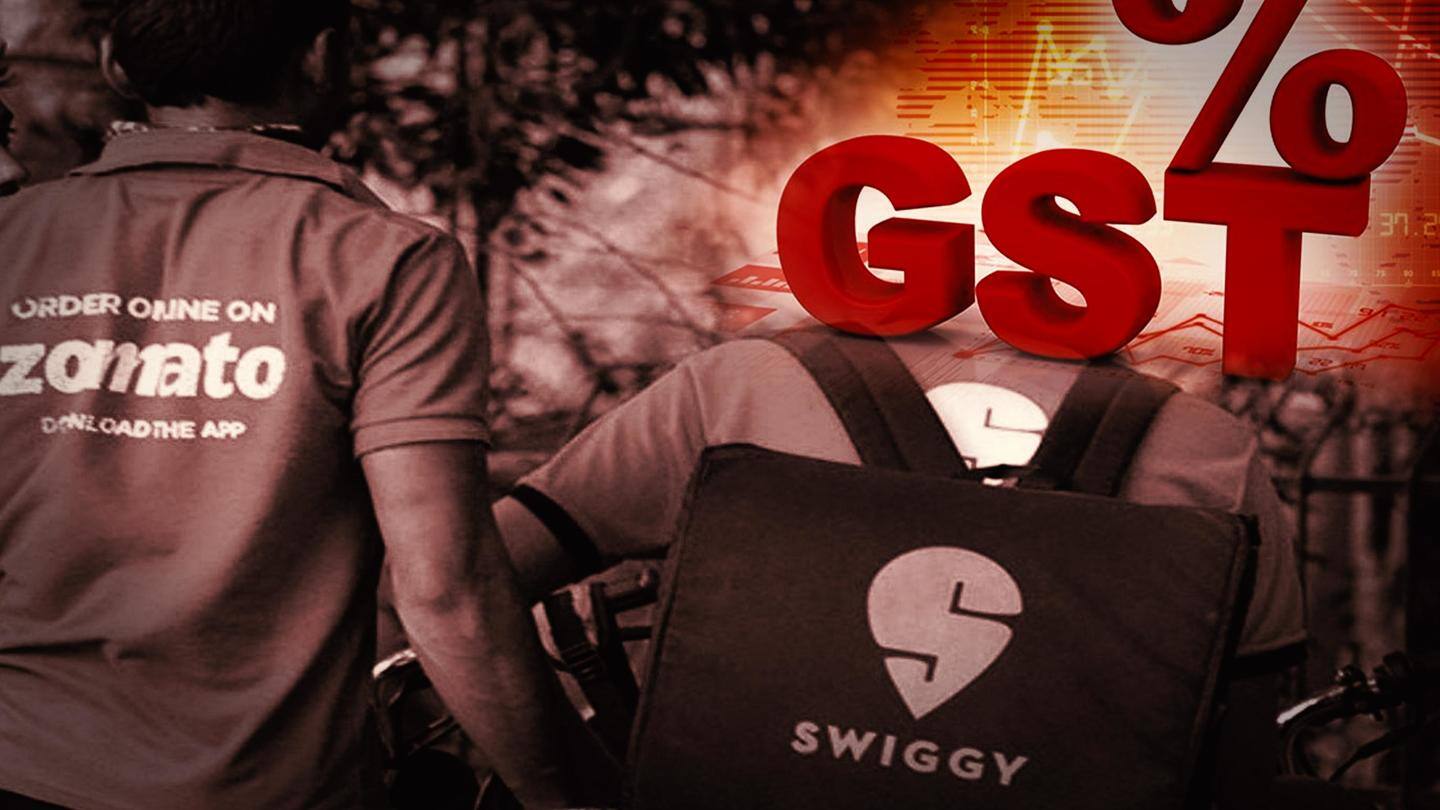
Swiggy, Zomato will now collect GST. Does it affect you?
What's the story
Food delivery platforms like Swiggy and Zomato will collect 5% Goods and Services Tax (GST) from customers instead of the restaurants they pick up orders from, the GST Council decided in a meeting on Friday.
The rule comes into effect from January 1, 2022.
Food aggregators currently fall under the Tax Collectors at Source (TCS) category.
Here's how it affects you.
Impact
Will the move affect customers?
"There is no new tax," said Finance Minister Nirmala Sitharaman while making the announcement.
Notably, customers will not have to pay extra because of this change.
The only difference is that instead of restaurants, now food delivery companies will collect the tax and deposit it directly to the government.
Government says this move will ease tax administration.
Reason
Why was the decision taken?
Officials said the decision was taken after they found tax evasion on part of some restaurants, meaning they would collect the GST but not pay it to the government.
Tax loss to the government due to the alleged under-reporting over the past two years is Rs. 2,000 crore, according to reports.
The government says the move will help avoid this tax evasion.
Quote
'Restaurants were not paying taxes'
"There were occasions where we were finding that the restaurants were not paying taxes," said Revenue Secretary Tarun Bajaj.
"Now a lot of orders are coming through these aggregators, so if you place an order from a restaurant through these aggregators, these aggregators will collect the tax from the customer and pay it to the authorities rather than paying it to the restaurant."
Information
What is the current rule for such companies?
At present, restaurants listed with food delivery companies pay a 5% GST on food bills while the delivery companies pay an 18% tax on the commission they earn from the restaurant.
Other decisions
Other decisions taken by the GST Council
Among other decisions, the government said that auto fuel would not be brought under the GST regime yet.
Further, GST on bio-diesel, which is used by oil marketing companies, has been reduced from 12% to 5%.
The GST Council also extended concessional rates for drugs used to treat mucormycosis and coronavirus until December 31. The rates were previously applicable till September 30.